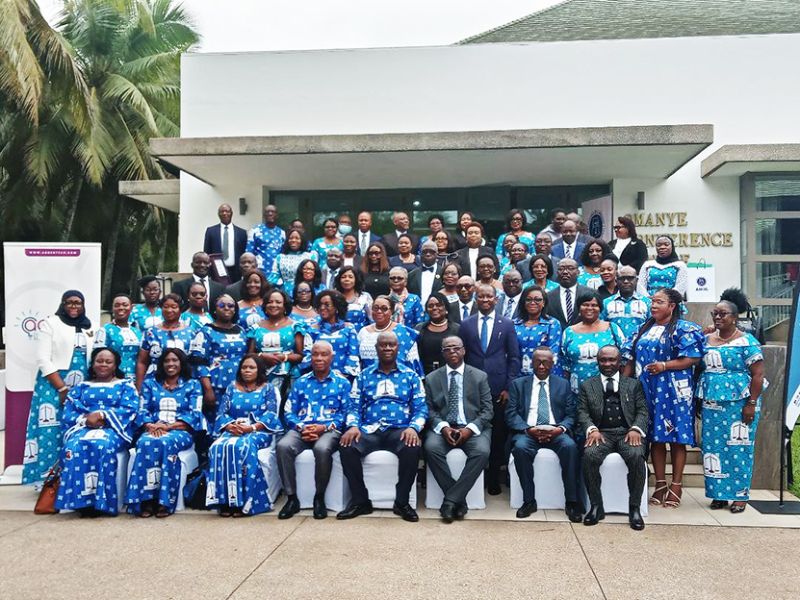The Association of Magistrates and Judges of Ghana (AMJG) has bid two justices of the Supreme Court – Agnes Dordzie and Justice Clemence Honyenuga – and ten others of the lower courts farewell after many years of service.
The Association sent off the retiring members amid cheering, acknowledgements, and presentation of plagues and envelopes at their annual conference held in Accra yesterday, under the theme: “Maintaining the Integrity of the Judiciary amidst the challenges of Democratic rights and Freedom.”
The retirement of the judges was announced by the AMJG President, Justice Henry A. Kwofie, while reading his address to welcome the members to the Conference.
He said the justices of the High Court going on retirement were Irene Charity Larbie and Merley Wood of the Court of Appeal, Fred Awuah, Nathaniel Osam, Rebecca Sittle, and Cecilia Donchebe.
The rest are Robert Agleze, Anthony Abiri Abebrese, Korkor Owusu Achaw and Seth Alafa of the Circuit and the District courts.
Justice Kwofie told the members that the package presented to the retiring judges this year had been increased, and that the decision was also based on the number of years they had severed and contributed to the Association.
According to him, the pervious practice where long serving members were bracketed with those who had served as judges and paid dues only for a short term, were unfair, adding, “We have also increased the amount paid to members in the event of bereavement.”
His Lordship Justice Anin Yeboah also announced to the members that the event was the last he would be attending as the Chief Justice of the Republic of Ghana, and thanked them for their contribution for justice delivery in the country.
He urged the members of the Association to use the occasion as an opportunity to take stock of their performances over the year, and identify where they fell short and strategise to secure the future and perform better.
Infrastructure development
Although Justice Kwofie was thankful for the infrastructural development being undertaken by the government, the he decried the deplorable state of the Cape Coast Court Complex, which urgently needed fixing, as well as the Wa Court Complex, which had also been abandoned.
Being particular about the Cape Coast Court Complex, he said: “I had the opportunity to visit one of my colleagues who works in the building this year in June, when it happened to be raining and although I am aware the court was in [a] deplorable state, I was shocked by what I saw; bowls and pans in various corners where the water was dripping to the judge’s office and [the] court room.
“It was definitely unacceptable, and no matter how determined you are to work [in] such an environment, [it] is not conducive to hard work. Something seriously needs to be done urgently about the Cape Coast Court Complex,” he lamented.
He noted that building more across the country requires an increase in the budget of the Judiciary to enable it purchase the materials the Association members needed to discharge their duties.
The Chief Justice gave an assurance that the government had not turned a blind eye on the deplorable conditions of the Cape Coast Court Complex and others that needed renovation, and that something was being done about them.
“We know that the working conditions of some of you, especially in the semi-urban areas are disappointing. We are working to improve the situation. We are investing more resources and refurbishing more court infrastructure including accommodation while we construct new ones,” he assured.
He added that the Service was making efforts to improve the application of technology to the work in the court rooms, and that they were equally working to acquire funding the World Bank for the expansion of the E-Justice system.









